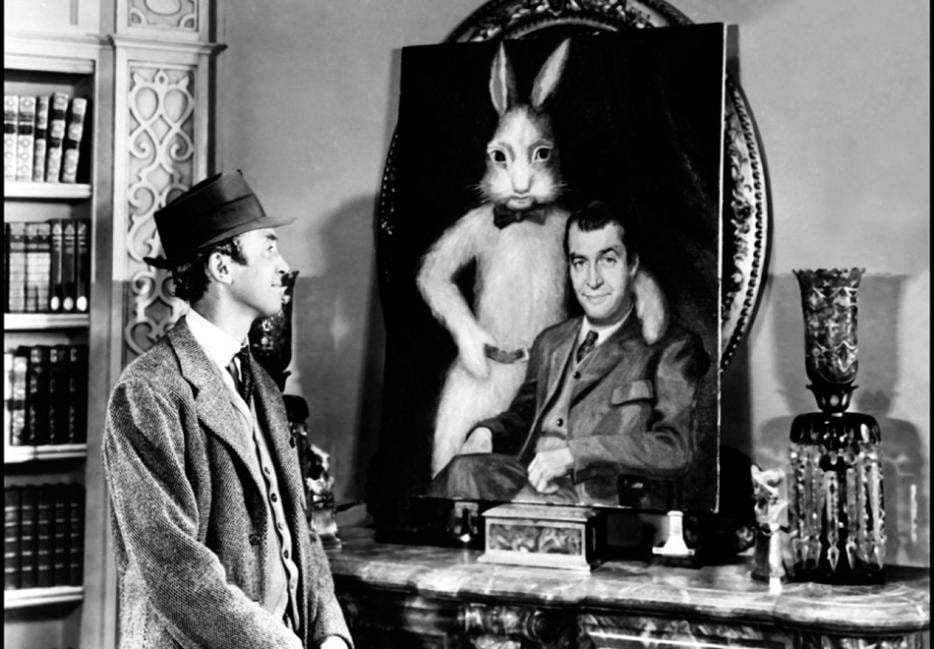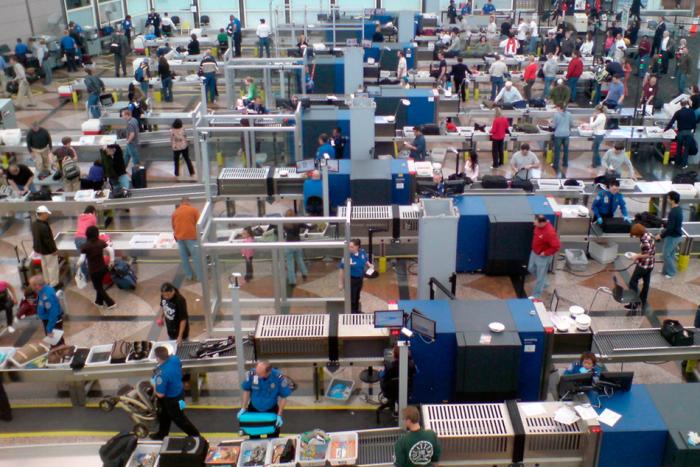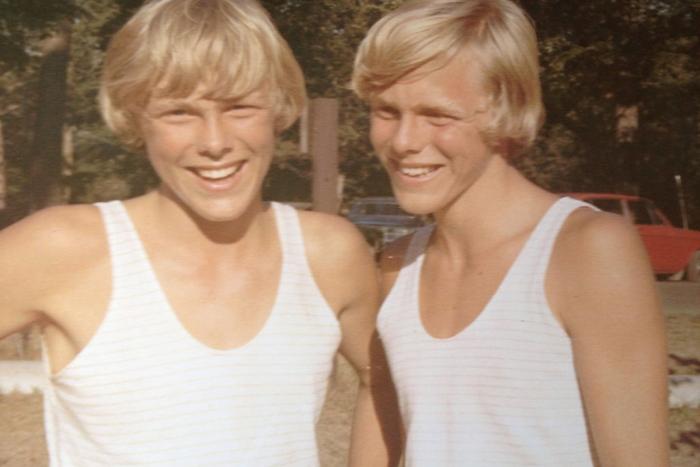I was twelve years old when my father, sitting next to me in his Cadillac outside my school, looked at his hands, calloused from hours at his electric guitar, and informed me that I was an adult, that I no longer needed him as a parent. He’d be leaving tomorrow, he told me, to drive down to Vegas to become a professional poker player. He was good at poker, had taught me everything I knew about the game, late nights skipping homework, betting pennies on the floor of his apartment from the age of eight, when he and my mother had divorced.
My father never made it to Vegas. He drove five hours to his parents’ home on a stark suburban street in Ottawa, and stayed there, on a futon in their living room, for twenty years. It didn’t make sense to me at the time: he was a gambler, an adventurer, a man with an insatiable thirst for life. These were all the impressions I had as a child, and all, save that he was a gambler, were false. My father had never lived alone. He was afraid of travel, of flying, and was not, as a gambler, equipped to take care of himself, let alone a child, financially. So his mother and father took him in. Perhaps out of the same strange sense of obligation I felt towards keeping him happy. More likely, I think, they felt they owed him. My father’s own childhood, from what I’ve heard, had it’s own extreme hardship between the war, the depression, and a father who swung between domineering and outright abusive. Together, perhaps unconsciously aware of this dynamic, they lived in an insular, isolated world, making their weekly trips to the casino, and to the Denny’s up the street for weekend brunches. This was their life, and as far as I could tell, they were content with it.
He would call once a year or so, around the holidays—or, rather, would have his mother call me and then pass him the phone, so adamant was he in his resolve to never again hear the sound of my mother’s voice. He and my mother had fought on a regular basis, sleeping in separate bedrooms and keeping opposing work schedules until they finally decided to get a divorce. The divorce resulted, as many do, in a vicious court battle, and in rages within my father that would manifest as statements, during otherwise calm mornings, about how he would like to shoot my mother between the eyes or drive her off a cliff.
I began to wonder, after he left, if part of what prompted his departure was my increasing resemblance to my mother. He’d gone almost instantly from the central figure in my life to a near-stranger. I flirted with suicide, withdrew socially, and took up hours of lying on the floor listening to ’90s grunge. He, meanwhile, had defaulted on his dreams, abandoned his daughter, resigned himself to a futon in his parents’ living room surrounded by craft supplies and Dollarama knick-knacks. It was during that first year in Ottawa that my father bought Harvey.
*
Harvey is a stuffed white rabbit, about two feet tall and cuddly, purchased from the gift section of a local bookstore. Harvey wears a black tie on special occasions, and is rarely left alone. My father would sit Harvey on the futon next to him during movie nights with his parents and carry him around in the local shopping mall during weekly outings with his father. He loathed his father, the war vet with a bitter disposition who, following the three strokes and tracheotomy, could express himself only in hisses, grunts, and seemingly random pointing.
He and my grandmother put up with Harvey, though, both handling the stuffed rabbit with the tired resignation of those who knew well the stubbornness of their son, and no longer had the energy to fight it. During weekend brunches, my father would sit Harvey in the chair next to him, order him a coffee, and smile at the waitress with unwavering confidence in the charm of his quirk. On the rare occasions that I was invited into their world I would glimpse this ritual, sitting across from my father and Harvey with a blank expression, a daughter too fixated on keeping her father’s love to display anything other than total compliance. There was such pride in the way my father presented his eccentricity to the small world around him. He had inserted himself into his parents’ life with success. He could do as he pleased. Now, with Harvey beside him, he’d upped the ante, proving to himself that he could take these little impositions to another level. Everything about him—the way he smiled in his cowboy boots and black cowboy hat; the thinning ponytail that crawled down along the back of his neck like a snake; the quickly aging and ratty rabbit—served to confirm his status as a man who could do whatever he wanted, regardless of how those around him might feel about it.
*
My father’s obsession with Harvey began with the Jimmy Stewart film of the same name, in which Stewart portrayed Elwood P. Dowd, a lovable anti-intellectual with his own Harvey—also a rabbit, though his was six-foot-two, invisible, and a bit of a smart-ass. From the time I was six or so, my father and I would watch the film annually, and he would transform into a child, eyes wide and mind open, receptive. He saw Stewart as a guru, mouthing the words as he said them: “Well, I’ve wrestled with reality for thirty-five years, doctor, and I’m happy to state I’ve finally won out over it.” This quote, I would realize years after his departure, was the key to my father’s approach to life.
Having grown up with a rigid, controlling father through the Depression, and having known nothing but poverty and perhaps frequent acts of aggression, I imagine my father’s interest in reality was beaten out of him at a fairly early age. My grandfather fought overseas in the Second World War. While he was gone he forbade my grandmother from working to keep the family well fed, and when he returned, he brought a warring aggression that unloaded itself almost exclusively on my father. I wonder if, for my father, part of the appeal of moving in with his parents was the reversal he might have felt, suddenly a strong and imposing force in his now sickly, silenced father’s life.
In the film, Dowd’s sister is desperate to be married, and his mother desperate to marry her off. His insistence upon parading his imaginary companion scares off friends and suitors alike, leaving the women in his life at a loss. Eventually they come to a sort of resigned realization that this invisible rabbit is important to Dowd in a way that overshadows them altogether.
*
My father was conflicted, he once confided in me, about Jimmy Stewart as a person. How, he wondered, could he play a hero such as Elwood P. Dowd in one film, then turn around and play a detestably selfless communist in another? The selfless communist he referred to, with notable disdain, was George Bailey from It’s a Wonderful Life. During the four years in which I lived alone with him for three days a week, between my parents’ divorce and his ultimate exit, he refused to let me watch that film, claiming it was communist propaganda that aimed to undo everything great thinkers such as Ayn Rand had worked so hard to achieve. My father didn’t read much, but when he did, without fail, he read Ayn Rand. He carried her books like bibles, quoting from them, much as he did Harvey, with an earnestness, a devotion, that seemed to me unwavering. My father was rarely an angry man, generally blissful in his willful neglect of the needs and demands of others, but when he talked about It’s a Wonderful Life, he became something almost frightening, shut off, righteous. It was a trait I’d known he carried with him always, hidden beneath the easy smile, and knowing about the trait is what kept me good. Knowing it was there meant knowing the maintenance of his cheery disposition depended upon me, on my ability to maintain my “good girl” status, to stay obedient, easygoing, to accept and embrace whatever it was he wanted to give, including Harvey.
For those four years, we did whatever he wanted, whenever he wanted. I learned not to want much, not to ask for meals or to go out for a few hours to visit with a friend. I existed to keep him entertained; together, we went to his favourite horror movies, or to the pool halls and racetracks at the outskirts of Mississauga. He didn’t think about things like washing my clothes or cooking me meals, and I was so eager to be loved that I learned quickly not to push for such things. While he stepped into the full glory of his most selfish, most imposing self, I shrank proportionately. I stopped knowing how to even begin to think about what I might want or need.
I was thirty when I finally saw It’s a Wonderful Life. I’d barely spoken to my father in a decade, save for the odd birthday text or holiday greeting card. That was how long it had taken for me to feel free enough in my autonomy to do something I knew would displease him. By the end of the film I was crying the way I wouldn’t allow myself to even when my father announced he was leaving: loudly, sloppily, and with uninhibited dejection. It was a beautiful film. It exhibited a Jimmy Stewart who cared about the people, the state of the world around him. Here was a version of manhood my father had so ardently hidden from me, protecting me from the knowledge that one could be generous, and giving, and that it could benefit those around him in profound ways. I, of course, knew how to be giving, having been trained well as a child. What I didn’t know was how to receive, the way those around George Bailey did, the benefits of such generosity. I was crying because it was heartwarming, but more than that, because while I’d cried plenty for the loss of my father, I’d never cried or even properly acknowledged the loss of wellbeing I’d suffered while in his presence.
*
The last time I saw my father was February of last year. He called out of the blue from a number I didn’t recognize to tell me he was dying. I agreed to see him one last time before he started a rigorous treatment of radiation and chemotherapy for stage-four lung cancer. They’d taken a chunk of his brain, where the cancer had spread, and the scar was still fresh, a Frankenstein’s monster gash across the right side of his head. He had, in addition to a flesh and bone wife who fixed us tea while we made small talk, a family of Harveys now. The rabbits sat in a pile on the couch, some smaller than others, some brown or beige, dressed with scarves or hats, some naked. He washed them monthly, he said, in the machine. His wife adopted the Harveys as though they were her own, and fretted about their comfort: was the temperature right? Were they dressed warmly enough? Did they have enough space? Did they feel loved?
I hadn’t seen my father since his own father’s funeral. Harvey wore a black silk tie for that occasion, and when the family went to Red Lobster afterward, he sat between my father and me. My father leaned over Harvey and opened his wallet in front of my face. There was a photograph, a little school photo of me when I was ten years old. You could see the meekness, the awkward way I held myself after the divorce. The year this photo was taken, my parents were engaged in a vicious court battle, I had just been diagnosed with a supposedly insurmountable learning disability, had been held back in school, and was generally on the verge of suicide. To my father, though, as I’d been well trained to please him, I was a smiling, obedient girl who enjoyed the horror movies and casinos and pool halls he brought me to. In showing me this old photograph he believed he was showing how much he loved me. I looked at the photo, saw in it the desperation of our two realities, and told him I had a more recent photograph he could have. I’d just finished graduate school in New York and had a smiling headshot, black cap, red lipstick and all. My father shook his head, folded up his wallet again, returned it to the back pocket of his black.
“No thank you,” he said. He told me the photograph represented the time when he loved me most. Sure, he still loved me now, he’d offered, in a way, but it was different. My father moved a glass of water a little closer to Harvey’s face, I suppose to make it easier for him to drink should he suddenly become animate and thirsty. I sat silent, waiting for the ordeal to be over, for freedom, again, from my father’s reality.






